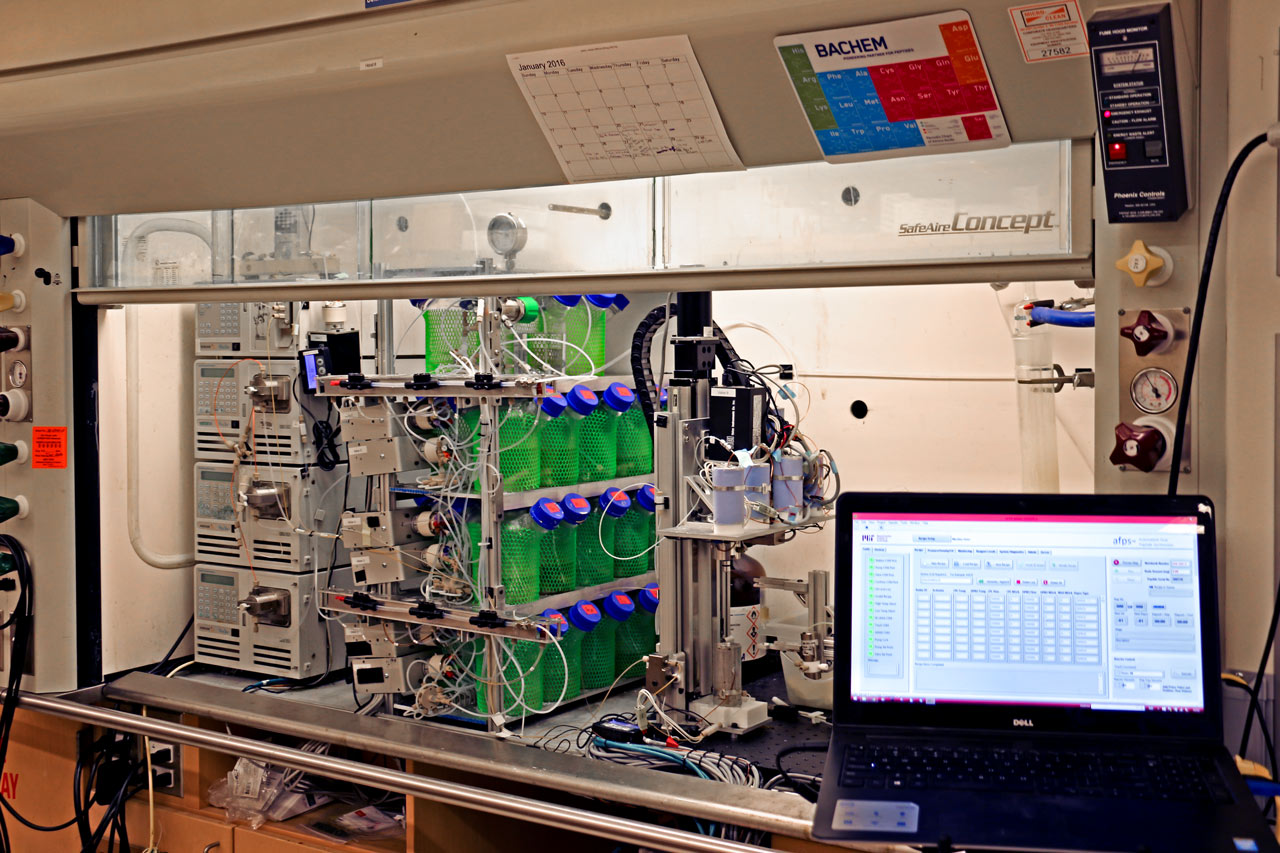A fully automated flow-based approach for accelerated peptide synthesis
Here we report a fully automated, flow-based approach to solid-phase polypeptide synthesis, with amide bond formation in 7 seconds and total synthesis times of 40 seconds per amino acid residue. Crude peptide purities and isolated yields were comparable to those for standard-batch solid-phase peptide synthesis. At full capacity, this approach can yield tens of thousands of individual 30-mer peptides per year.
Pentelute Lab, MIT, Cambridge, Chemistry, Molecular biology, technology development, peptide, protein-based therapeutics, chemical Biology, Bradley Pentelute
16734
wp-singular,portfolio_page-template-default,single,single-portfolio_page,postid-16734,wp-theme-bridge,bridge-core-3.0.1,qode-page-transition-enabled,ajax_fade,page_not_loaded,,paspartu_enabled,paspartu_on_top_fixed,paspartu_on_bottom_fixed,qode_grid_1200,qode_popup_menu_push_text_top,qode-theme-ver-28.7,qode-theme-bridge,disabled_footer_top,wpb-js-composer js-comp-ver-6.8.0,vc_responsive
A fully automated flow-based approach for accelerated peptide synthesis
A fully automated flow-based approach for accelerated peptide synthesis
Nature Chemical Biology (2017)
DOI:10.1038/nchembio.2318
Published: Received 03 September 2016 Accepted 05 December 2016 Published online 28 February 2017
Authors: Alexander J Mijalis, Dale A Thomas III, Mark D Simon, Andrea Adamo, Ryan Beaumont, Klavs F Jensen & Bradley L Pentelute
Abstract
Here we report a fully automated, flow-based approach to solid-phase polypeptide synthesis, with amide bond formation in 7 seconds and total synthesis times of 40 seconds per amino acid residue. Crude peptide purities and isolated yields were comparable to those for standard-batch solid-phase peptide synthesis. At full capacity, this approach can yield tens of thousands of individual 30-mer peptides per year.
Category
2017, Publications





